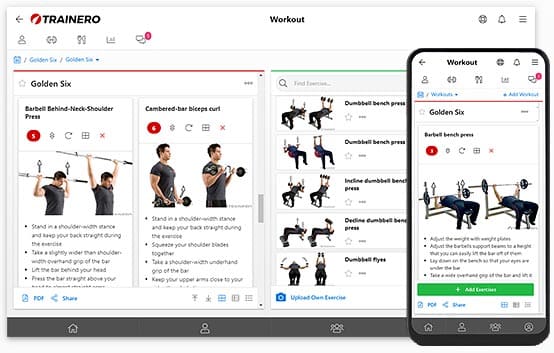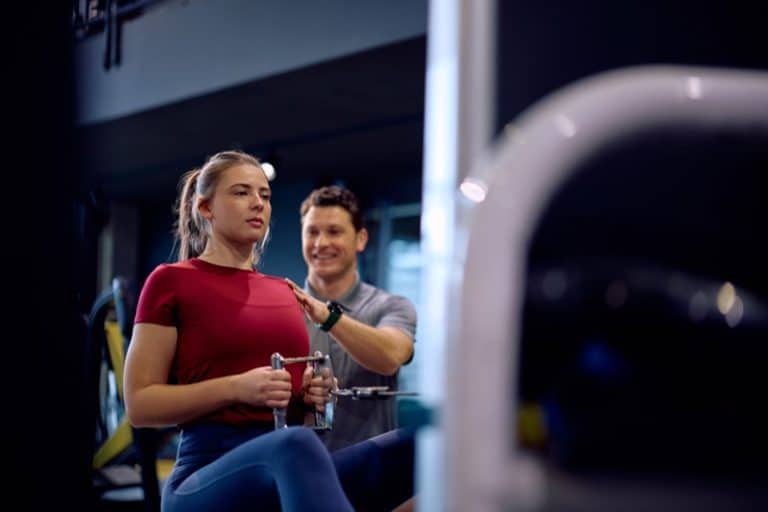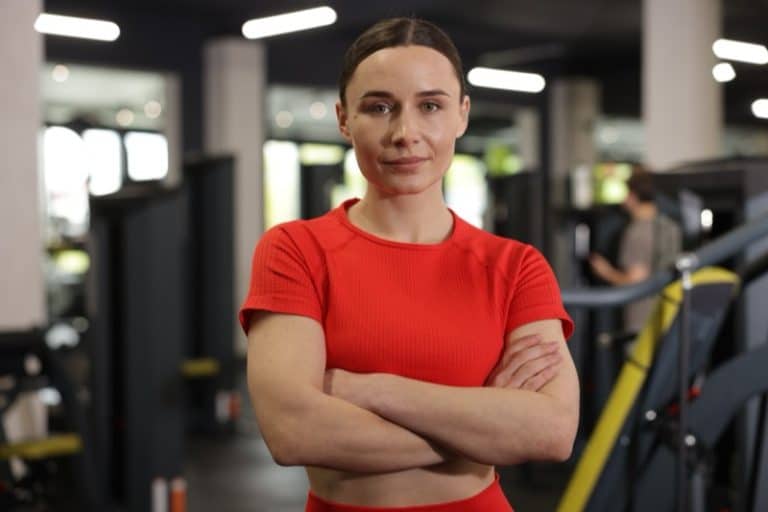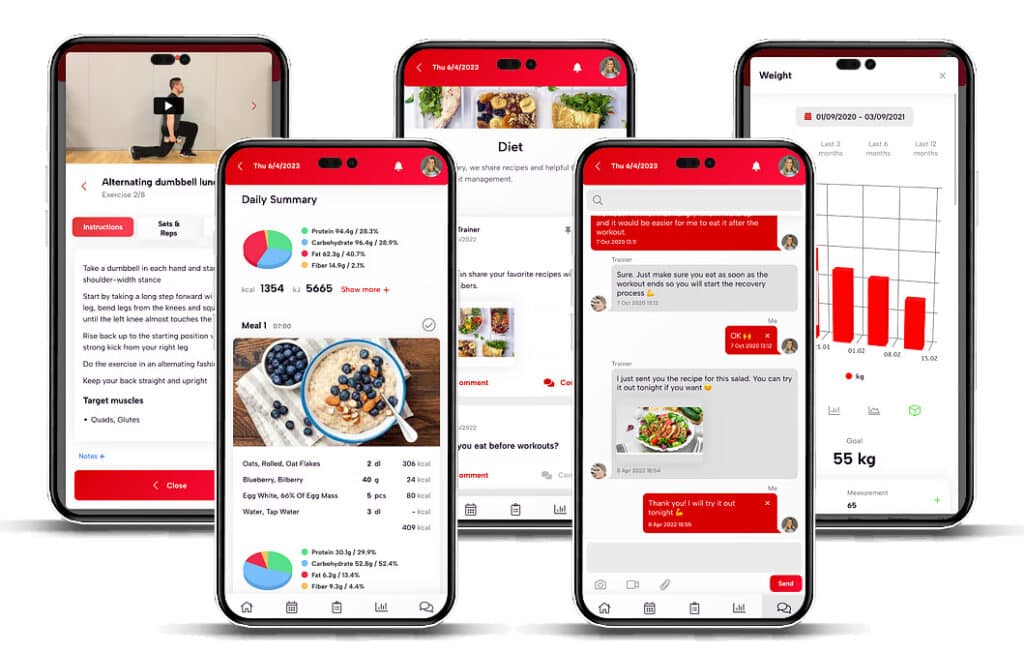Embarking on a personal training journey is a collaborative effort between the trainer and the client. Whether you’re a seasoned personal trainer or just starting your personal training business, understanding your client’s needs and aspirations is crucial. Asking the right questions during a personal trainer interview can set the foundation for a successful partnership. The questions you ask not only help in crafting a tailored training program but also in motivating and engaging your clients. In this article, we will explore the key questions to ask your new client to ensure their fitness journey is both effective and rewarding.
Understanding the Client’s Goals
Understanding your client’s goals is the cornerstone of personal training. It’s important to ask a personal trainer interview question that delves into what the client hopes to achieve. Are they looking to lose weight, gain muscle, or simply improve their overall fitness? Knowing these objectives will help you design a workout routine and nutrition plan that aligns perfectly with their aspirations. Fitness goals can be diverse, and asking questions in advance about their expectations and timelines will ensure both you and your client are on the same page.
Key Questions to Assess Fitness Objectives
When assessing a client’s fitness objectives, key questions can reveal much about their personal aspirations and how best to support them. You might ask questions such as:
- What are your long-term fitness goals?
- How do you envision a successful training program?
- What motivates you to exercise?
These questions can help you gauge the client’s level of commitment and tailor a personal training experience that keeps them engaged. Understanding their motivation can also guide you in adjusting the training methods and routines to fit their lifestyle and schedule, making it easier for them to adhere to the program.
Questions to Ask About Previous Training Experience
Inquiring about a client’s previous training experience is essential. Questions to ask might include: Have you worked with a personal trainer before? What type of exercise routines have you enjoyed in the past? Do you have any experience with specific training programs or gym equipment? Understanding their past experiences can provide insight into what training methods might work best for them and if any adjustments are necessary. This dialogue will also help identify any previous challenges they faced, allowing you to tailor your approach to avoid similar pitfalls and enhance their overall fitness journey.
10 Personal Goals to Discuss with Clients
Discussing personal goals with your client is a crucial aspect of building a comprehensive and effective training plan. Here are 10 personal goals to discuss:
| Goal | Approach |
|---|---|
| Improving cardiovascular health | Cardio exercises, balanced diet |
| Increasing strength | Strength training, protein intake |
| Enhancing flexibility | Stretching, yoga |
| Losing weight | Calorie deficit, cardio workouts |
| Gaining muscle mass | Weight lifting, high protein diet |
| Improving sports performance | Sport-specific training, agility drills |
| Boosting energy levels | Balanced diet, regular exercise |
| Enhancing mental well-being | Meditation, stress management techniques |
| Achieving a specific physique | Targeted exercises, nutrition plan |
| Maintaining a healthy lifestyle | Consistent healthy habits, regular check-ups |
Each goal requires a different approach, and a discussion about these aspirations will guide the development of a personalized training program that addresses the client’s unique needs. This conversation also serves to clarify expectations, ensuring that both the trainer and the client are aligned in their fitness journey objectives.
Health and Medical Background
Understanding the health and medical background of a client is imperative for any personal trainer aiming to create a safe and effective training program. Before jumping into workout routines, it’s important to ask a personal trainer interview question that digs into the client’s medical history. This encompasses any previous injuries, existing medical conditions, or ongoing treatments that might affect their ability to safely engage in exercise. A comprehensive understanding of these factors allows the trainer to tailor fitness programs that accommodate the client’s health status, ensuring they don’t exacerbate any conditions. Additionally, this knowledge helps in setting realistic fitness goals and aligning them with any medical advice or restrictions the client has received from healthcare professionals.
Frequently Asked Questions Regarding Health History
Frequently asked questions regarding a client’s health history are essential for crafting a safe training regimen. You might want to know: Do you have any chronic conditions such as diabetes or heart disease? Have you experienced any injuries that might affect your training? Are you currently on any medication that could impact exercise performance? These questions can reveal potential risks and help in planning workouts that are both safe and effective. For instance, a client with a history of knee injuries might require low-impact exercises, while someone with cardiovascular issues may need a carefully monitored routine. By asking these questions in advance, trainers can ensure they are well-prepared to address any health-related concerns.
Personal Trainer Interview Questions About Injuries
When interviewing clients, questions about past injuries are pivotal. Clients may have a history of injuries that could affect their ability to perform certain exercises or participate in specific training methods. Questions to ask include: Have you had any surgeries or injuries in the past few years? Are there any movements or exercises that cause you discomfort? Understanding these factors enables trainers to modify workout routines appropriately and avoid exercises that might aggravate past injuries. This not only safeguards the client’s health but also builds trust, as clients feel their concerns are taken seriously. A well-informed trainer can develop a program that prioritizes the client’s safety while still achieving their fitness objectives.
Answering Client Concerns About Medical Conditions
Addressing client concerns about medical conditions is a critical component of the personal training process. Clients may have apprehensions about how their conditions will impact their ability to achieve fitness goals. It’s crucial to provide answers that reassure them of the adaptability of their training program. For example, clients with asthma might worry about cardio exercises, while those with arthritis may have concerns about strength training. By discussing these issues openly, trainers can adjust the intensity, frequency, and type of exercises to accommodate the client’s health needs. This approach not only keeps clients engaged but also demonstrates the trainer’s commitment to delivering a personalized and effective fitness journey.
Personal Preferences and Lifestyle
Right Questions to Determine Training Preferences
Understanding a client’s personal preferences is fundamental in designing a training program that they will enjoy and adhere to. Asking the right questions can help uncover these preferences and ensure that the training methods align with their lifestyle and fitness aspirations. Questions to ask might include: What type of exercise do you find most enjoyable? Do you prefer working out in a gym, outdoors, or at home? How much time can you realistically dedicate to exercise each week? By delving into these areas, personal trainers can tailor workouts that motivate and engage their clients, ensuring that the training routine fits seamlessly into their daily schedules. This approach not only enhances the client’s experience but also fosters a long-term commitment to their fitness journey.
Questions to Ask About Diet and Nutrition
Diet and nutrition play a pivotal role in achieving fitness goals, and understanding a client’s current eating habits is essential for developing a comprehensive personal training plan. Key questions to ask include: What does your typical daily diet look like? Are there any dietary restrictions or preferences we should be aware of? How do you feel about incorporating nutritional changes into your routine? By gathering this information, trainers can provide tailored nutritional guidance that complements the exercise program. Additionally, discussing nutrition helps in setting realistic expectations and aligning dietary advice with the client’s lifestyle. Whether clients aim to lose weight, gain muscle, or simply maintain their health, a personalized nutrition plan can significantly enhance their training outcomes.
10 Personal Insights into Client Lifestyle Choices
Gaining insights into a client’s lifestyle choices is invaluable for crafting a training program that aligns with their everyday life. Here are 10 personal insights to explore:
| Insight | Description |
|---|---|
| Work schedule and time commitments | Understanding when and how much time a client can dedicate to training. |
| Preferred workout times | Identifying the best times for a client to exercise. |
By understanding these aspects, trainers can design a program that not only fits the client’s schedule but also accommodates their unique lifestyle demands. This holistic approach ensures that fitness goals are attainable and sustainable, and it keeps clients engaged by respecting their personal circumstances and preferences. Ultimately, tailoring a training program to fit a client’s lifestyle enhances their motivation and the likelihood of long-term success.
Motivation and Commitment
Motivation and commitment are crucial factors in the success of any personal training journey. As a personal trainer, it’s important to assess the client’s motivation to ensure they are ready for the commitment required to meet their fitness goals. When you ask a personal trainer interview question centered on motivation, you delve deeper into what drives the client. Understanding their intrinsic motivators helps you tailor a training program that resonates with them. Whether they want to lose weight, gain strength, or simply enjoy a healthier lifestyle, discovering what fuels their desire to change is key. This knowledge not only informs the training methods you choose but also helps in keeping clients engaged throughout their fitness journey.
Key Questions to Evaluate Client Motivation
Asking the right questions to evaluate a client’s motivation is essential for creating a successful workout routine. Key questions might include: What inspired you to start personal training? Have you had any past experiences that have shaped your current fitness goals? How do you envision your ideal fitness journey? These questions help the trainer understand the client’s mindset and readiness to commit to the program. By evaluating their motivation, trainers can design a comprehensive and personalized approach that speaks to the client’s aspirations, keeping them focused and driven. This step is crucial in maintaining motivation over time, especially when faced with challenges or setbacks.
Personal Trainer Interview Questions on Commitment Level
Assessing a client’s commitment level during the interview process is vital for ensuring they are prepared for the demands of a personal training program. Questions to ask might include: How much time are you willing to dedicate to your fitness routine each week? What sacrifices are you prepared to make to achieve your fitness goals? Have you set any milestones to track your progress? These questions provide insight into the client’s willingness to prioritize their health and fitness. By understanding their level of commitment, trainers can set realistic expectations and develop a training schedule that aligns with the client’s lifestyle. This clarity helps prevent future frustrations and supports long-term success.
Answering Client Queries About Long-Term Goals
Clients often have queries about how to achieve their long-term fitness goals, and as a personal trainer, providing clear and encouraging answers is essential. Clients may wonder how their current efforts will translate into long-term success. As a coach, it’s important to explain how consistent effort in both exercise and nutrition can lead to sustainable results. You might discuss the importance of setting both short-term and long-term goals and how each step contributes to the bigger picture. By addressing these queries comprehensively, trainers can help clients understand the value of perseverance and the incremental nature of fitness progress, ensuring they stay motivated and committed to their personal training journey.

Unlock your fitness potential with Trainero! Get a 14-day free trial and access personalized workout plans, expert coaching, and progress tracking—all in one app. No commitments, just results. Start your free trial today and take your fitness journey to the next level!











